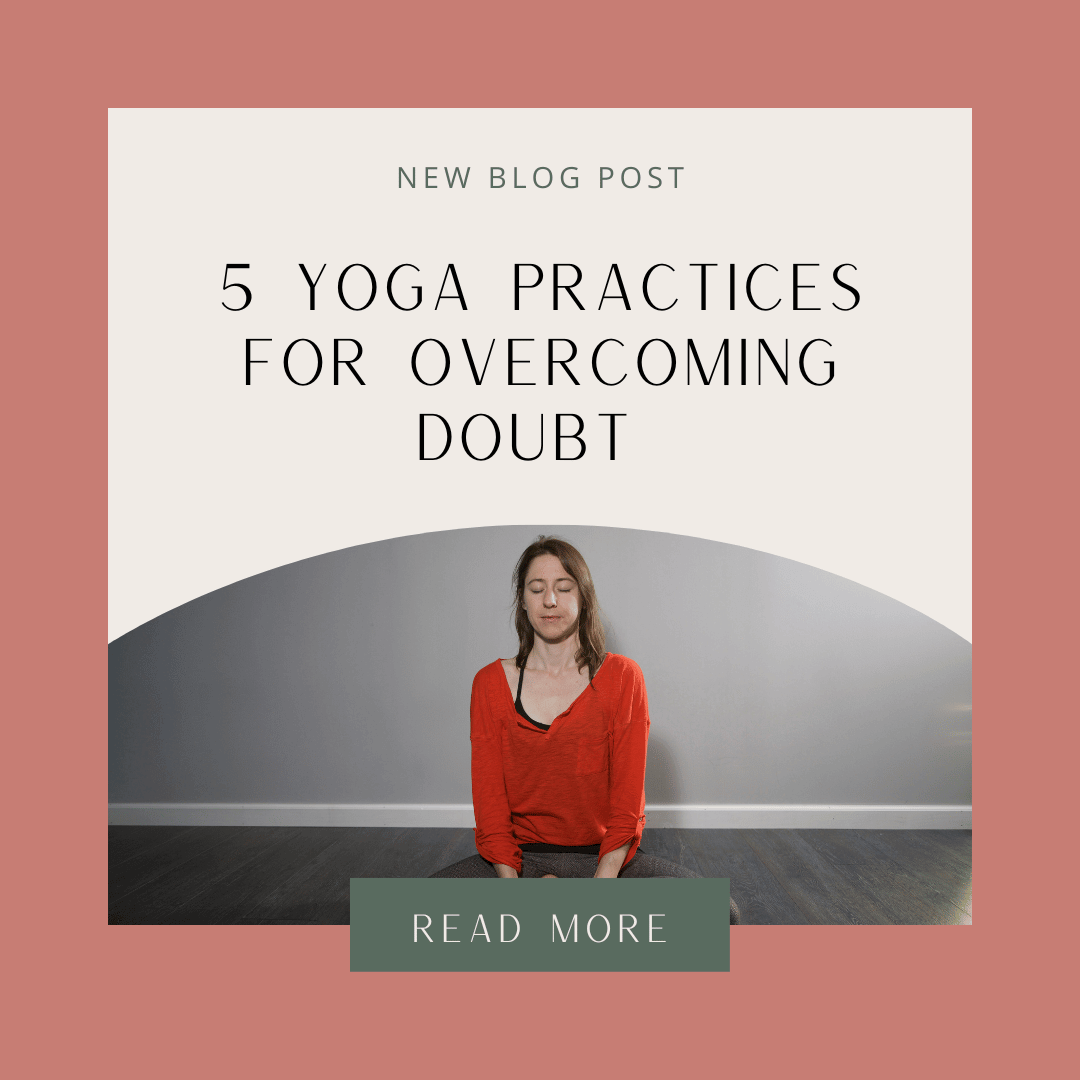A while back a phrase came to me: Spiritual Productivity.
I wasn’t sure what it meant, but it sounded good. I wrote it down and tucked it away.
I keep coming back to it. I still am not sure what it means but I still like it. The phrase fires something up inside of me, although I’m not sure what that is yet either.
The foundations of my spirituality
Last week I took a Stand Up Paddleboard Yoga class with my mother- and sister-in-laws. We’re a fun bunch. My mother-in-law is an acupuncturist, two of my sister-in-laws have gone through yoga teacher trainings, and the third is thinking about starting a yoga teacher training this summer. Our practices all vary and we like yoga for different reasons, as it should be.
When I take classes with my family, they always ask me what I thought about the class afterward. They ask me to rate the teacher and what I liked and didn’t. I always have a hard time answering these questions because I tend to automatically start thinking about how I would teach the class based on my experiences. That doesn’t mean that the teacher leading wasn’t a good teacher or did a bad job. One of the things I mentioned was that I wished the teacher had been more spiritual. My mother-in-law pointed out that had I taken that same class a few years ago, I would have thought differently and she was right. It took me a long while for me to really value and seek out the spiritual underpinnings of the practice of yoga.
“Spiritual” has many different meanings. I’m exploring spirituality through mythology with the guidance of Alanna Kaivalya’s newest book Yoga Beyond the Mat. I’ve taken an interest in the Hawaiian mythology that I knew nothing about previous to my current visit. I’ve charted my natal chart and looked to the stars for wisdom. And I keep studying my yoga texts for more insight into this philosophy I’ve chosen to live my life by.
Nature is also a spiritual experience for me, so when I was doing a class on the Stand Up Paddleboard, I couldn’t help but think how incredible it was to be in the water, with the wind blowing gently on my skin and the sound of the waves crashing on the beach, the space all around me beyond the horizon and the mountains looming behind me. The teacher shared with us a conch mudra at the beginning where we could set our intentions and then release them into the water. It was simple and I loved it. I wanted more of it!
Being spiritual to me is finding ways to connect with spirit in everyday life. I want more of that in my own life. Many of us are looking for more ways to become meaningfully connected in our daily lives given the state of the world we live in today.
Spirituality is timeless. Spiritual productivity seems like an oxymoron, then, because productivity is all about being efficient with time.
Why productivity matters
One skill I’ve always taken pride in is my time management. I don’t know that I’m always great at it, but my teachers always chose that phrase on my report cards in school. I didn’t have issues managing my coursework in college. I was clear on my priorities and always made time to get my work done. Even when I had an office job, I was able to pretty easily prioritize and organize my work day. By nature, I come from a family of German planners.
When I took a job working for a productivity master, Charlie Gilkey, I got a whole new education in planning for business. The further I get along in my own business and in helping others in their businesses the more I understand the absolute importance of planning and how easy it is not to do it.
Now I find myself reconciling the importance of planning with spiritual pursuit.
I like planning because I like control. Spirituality, in my current understanding of it, asks that you give up control and go with the flow.
The marriage (and birth?) of Spiritual Productivity
To this day I have trouble with discipline — “tapas.” I have trouble sticking to plans long-term because I get easily distracted. I love creating the plans, it’s the execution part I stumble on.
Ironically enough, same goes for my spiritual practice. I love feeling connected, but I have trouble sticking with the process.
This is how I got to the notion of spiritual productivity. Is there a way to be productive in my spiritual practice in a way that doesn’t feel inauthentic or forced but still motivates me to do my practice?
There will have to be a different lexicon for spiritually productivity. I don’t want to “get stuff done” because it’s not about doing spiritual things just to do them and cross it off the list. Then again, what I learned from Charlie was very much a spiritual way of being productive to begin with, though he might never call it that because it doesn’t necessarily fit with his audience.
Spiritual productivity is my phrase for dealing with what many of us grapple with — how do we be productive human beings in the world and still maintain a sense of connection that allows us to be guided by spirit?
What yoga has to say about it
One of my current reads is T.K.V. Desikachar’s book The Heart of Yoga. A few relevant passages:
“Yoga has its roots in Indian thought, but its content is universal because it is about the means by which we can make the changes we desire in our lives.”
“Each of us is required to pay careful attention to the direction we are taking so that we know where we are going and how we are going to get there; this careful observation will enable us to discover something new.”
My interpretation of these words is that practicing yoga is one way to go about executing your life plans! By observing we are able to make better decisions that will help lead us in the direction that is right for us.
However, we must let go of our expectations about where we are going because we might end up somewhere else — life is always changing and we can never truly know what’s in store. When we don’t end up where we thought we would, we might start to doubt our inner guidance and discredit it. If we’re able to be where we are, we can continue to go back to our plans and our practice for right guidance.
This same understanding is in line with one of Charlie’s business planning principles: If you’re planning effectively you’ll always be changing your plans.
In the Yoga Sutras this concept is embodied in Kriya Yoga and described in 2.1:
“Tapas Svadhyaya Ishvara Pranidhana Kriya Yoga”
Which is translated in these three ways (multiple translations are helpful in grasping the full meaning of a concept):
“The practice of Yoga must reduce both physical and mental impurities. It must develop our capacity for self-examination and help us to understand that, in the final analysis, we are not the masters of everything we do.”
T.K.V. Desikachar, The Heart of Yoga
“The schematic practice of yoga consists of three components: tapas (austerity), svadhayaya (self-study), and Ishvara pranidhana (unshakeable faith in the guiding and protecting power of God).”
Pandit Rajmani Tigunait, Yoga International
“Yoga in the form of action (Kriya Yoga) has three parts: 1) training and purifying the senses (tapas), 2) self-study in the context of teachings (svadhyaya), and 3) devotion and letting go into the creative source from which we emerged (ishvara pranidhana).”
Swami Jnaneshvara, Swamij.com
There is an inevitable paradox to spiritual productivity, just as there is an inevitable paradox in yoga itself. We must plan our spiritual practice, do our spiritual practice, and at the same time embrace change and let go of outcomes. And keep showing up.
Be guided by spirit in 2017
As I sit here and try to think about what is appropriate to share with you this year, what I want to teach, how I want to teach, etc. this word spiritual productivity keeps coming back to me and I figured it’s time to let it loose. It will continue to evolve as I evolve. I hope that it helps you think about your own spiritual practice, in whatever form that takes for you, in a new way.
I hope this helps you plan your 2017 in whatever form that takes and that you write in pencil so that you can change your plans when it’s time.
I hope you have the courage to be guided by spirit as you plan and trust that when you fail it was meant to be, that you let go of your expectations, learn your lessons, observe, go back to your plans, erase what needs to be erased, and write down your next experiment.
Welcome to 2017!
Ready to start your yogic life? Download the Essential Elements to Living Your Inspired Life here.
Namaste.





